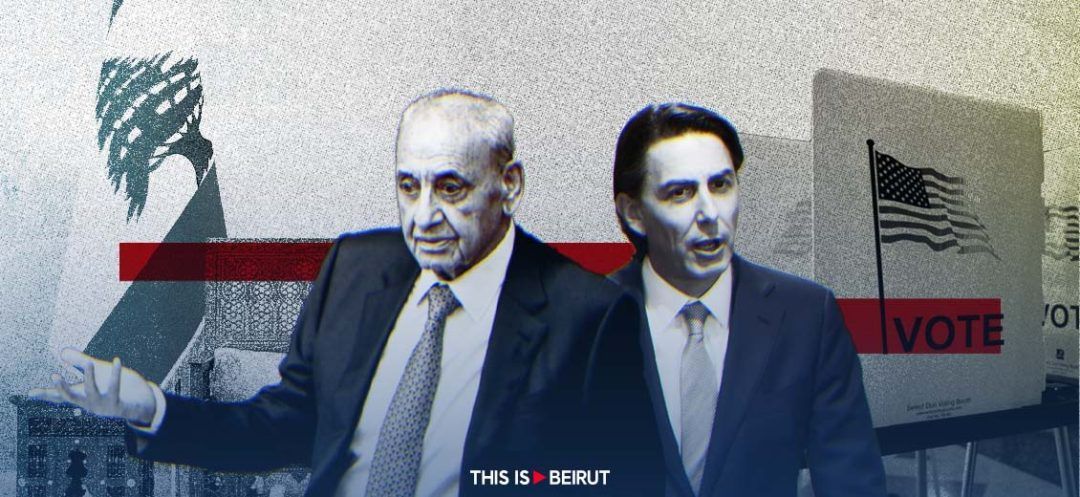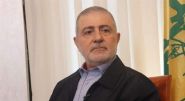
Optimism conveyed by the Qatari envoy regarding Parliament Speaker Nabih Berri’s position on the presidential issue didn’t resonate the way it should have. The cautious hope by the ambassadors of the five-nation group, known as the Quintet (Saudi Arabia, Egypt, US, France and Qatar), about a potential – even modest – breakthrough in the presidential deadlock, dwindled following Berri’s steadfast commitment to dialogue as a way to reach a consensus on the election of a president.
What the ambassadors of the Quintet heard from Berri contrasted with what he told the Qatari envoy about "numerous basic presidential principles." In that context, Berri seems convinced that his candidate, Marada party leader Sleiman Frangieh, will not secure the presidency due to the lack of both internal Christian support and foreign backing.
Furthermore, during a conversation about potential candidates, Berri brought up the idea of conducting an open-ended session until the election of a president and placed no veto on a potential third candidate.
Before the Quintet ambassadors visited Berri, a meeting attended by a Hezbollah delegation and representatives from Bkerke was held at the house of a Keserwan MP. The delegation conveyed the following message to the Maronite Patriarchate: "The party advocates for a dialogue to reach a consensus on the presidency."
Berri obviously modified his stance following Gaza’s ceasefire developments and Hezbollah’s insistence on dialogue.
Sources from the opposition attribute the shift in the position of the Shiite duo (Amal/Hezbollah) to efforts aimed at achieving a renewable 45-day truce in Gaza. During this period, prisoners and hostages from both sides would be released. The step is intended to be followed by a political settlement based on a two-state solution. According to Hezbollah circles, the party is growing increasingly uneasy, particularly following Israeli Defense Minister Yoav Gallant’s statement, "If Hezbollah believes that a ceasefire in Gaza will lead to a cessation of hostilities in Lebanon, it is mistaken. We will not stop the battle as long as we haven't secured the safe return of northern residents." This position prompted Hezbollah to reassess its stance following the Quintet's initiative to elect a president and the diplomatic efforts, urging the party to adhere to the implementation of UN Resolution 1701.
Fast regional developments, in addition to the deadline served by the Quintet to hold presidential elections within weeks, raised Hezbollah's concerns, taking precedence over other issues. This would effectively distance Lebanon's crisis from broader regional challenges, with a focus on electing a president, forming a government, implementing reforms and fully enforcing Resolution 1701.
Also under the loop is securing the border area with Israel, up to the Shebaa Farms, in line with the internationally recognized borders, as established under the 1949 armistice agreement between the two countries. All of these factors raised Hezbollah’s suspicion of a regional and international plan aimed at ending its so-called military "resistance" role, following a ceasefire in Gaza and the demarcation of the land border from the disputed point B1 in Naqoura.
Consequently, the Iran-backed party opted to keep the presidential election outside any deal, deeming it a crucial card to be used in negotiations. Essentially, Hezbollah will not forego its role and weaponry, nor will it accept a president from outside the (pro-Iran) "Resistance axis" that would undermine its influence. Instead, it wants a candidate according to its terms and specifications.
South Lebanon and the presidential election serve as strategic leverage, that can be used in case there is an attractive US offer to be conveyed by Amos Hochstein, in parallel with the Gaza ceasefire.
Political insiders close to Hezbollah suggest that Hochstein might bring forth an American proposition, "You can have the presidency if you adhere to the terms of 1701." However, a foreign mediator pointed out, "There has been no indication from the party about a trade-off or a free deal to comply with 1701, and no names for the presidency have been raised."
The Lebanese Forces (LF) party explicitly rejects any form of trade-off or discussion on the issue. They assert, "Our steadfast rejection in 1988 of the American equation in electing Mikhael Daher amidst chaos still stands in 2024, more so, given the significant difference in circumstances, at a time the ‘Axis of Resistance’ is on the decline."
The LF also stressed that "the Lebanese have bitterly experienced living under the rule of (Hezbollah-led) ‘Moumanaa’ leaders who were inept and ill-equipped for governance."
For the LF, any compromise is unlikely, and the purported equation of trading Hezbollah’s withdrawal from the south of the Litani in exchange for a president that suits the party is categorically off the negotiation table.
While Hochstein’s messages to Hezbollah underscore the imperative of adhering to Resolution 1701, the party insists on having a say in the presidential dossier. Hence, Berri ended up turning the Quintet’s ambassadors into low-key "intermediaries" whose role is to convey messages between concerned factions.
According to diplomatic sources, the presidential deadline is intricately linked to what is dubbed as the "third day arrangements." As a de-escalation deal underway in Gaza would serve as a precursor to a broader regional settlement, the Quintet has been pushing for a third option that separates Lebanon’s crisis, a quest that is staunchly opposed by the Shiite duo who seeks to impose its presidential candidate.
According to Egyptian Ambassador Alaa Moussa, the Quintet "is making concerted efforts, but the final decision lies in Lebanon."
But Berri has been underscoring the crucial need for dialogue, citing parliament divisions impeding presidential elections. However, a well-informed source argued that "what we are currently witnessing is an Iranian-Saudi de-escalation ahead of the US elections, and that no breakthrough is likely (in Lebanon) before the US polls."
Read more



Comments